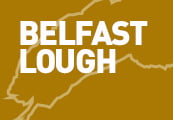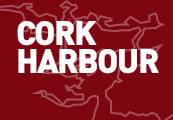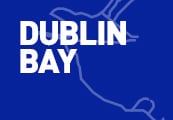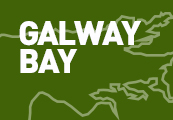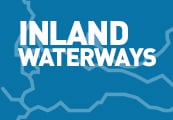Displaying items by tag: Inland Fisheries Ireland
River Habitat Enhancement Works Announced for Lough Corrib Catchment
Inland Fisheries Ireland (IFI) has announced details of 31 locations prioritised for river habitat enhancement works in the wider Lough Corrib catchment area.
Each of the 31 river channels has been prioritised for enhancement works based on its hydromorphological condition, which considers how far the state of the river had departed from its natural condition.
The prioritisation follows extensive consultation by the State agency with responsibility for the protection and conservation of freshwater fish and habitats with stakeholders, including local angling clubs, the National Parks and Wildlife Service and the Office of Public Works.
In addition to surveys of the river channels, a review of the physical and ecological characteristics of the watercourses in the catchment were carried out, including water quality and fish status analysis.
A high priority was given to channels with moderate and good water quality; as well as those with low fish status.
Speaking about the announcement, Barry O’Connor, director of IFI’s Development Programme, said: “Following significant research and consultation by IFI, this prioritisation list of 31 river channels sets out where the most urgent habitat rehabilitation works are required in the Lough Corrib catchment area, and will allow us to focus our resources on the areas that are in most need of help.
“This is in addition to the annual maintenance of priority salmonid habitats being conducted by IFI staff throughout the catchment, along with stock management, and weed control operations.
“All prioritised works will be included in our medium-to-long-term management plan for the Great Western Lakes, which is currently under development.”
It is proposed that the enhancement works will be completed over a five-year period, with some already underway at a number of top priority habitat sites.
Extensive preparations will take place for the remaining sites, subject to the availability of resources. These include:
- Landowner consultation and securement of consent.
- Preparation of a development plan for each site, followed by appropriate assessment to ensure that sensitive species and habitats are not adversely affected by the proposed works.
- Undertaking of fish surveys before works are undertaken and in the year after the works are carried out. Further monitoring surveys may also be carried out.
- Application for consent to the relevant authorities, followed by procurement of contractors and materials.
Drone Patrols More Important as Illegal Fishing Activity Increases During 2020 COVID Restrictions, IFI Says
Patrol drones and other surveillance equipment have become increasingly important to detect illegal angling and fishing in hard-to-reach areas, according to Inland Fisheries Ireland (IFI).
The State agency with responsibility for the protection and conservation of freshwater fish and habitats says it recorded an increase in illegal fishing activity last year during COVID restrictions.
Over 33,000 patrols undertaken by fisheries officers in 2020, the agency initiated 119 prosecutions for fisheries-related offences in 2020, compared with 67 prosecutions in 2019.
IFI seized 1,287 illegal fishing items last year, up from 788 items the year before. Fisheries officers issued 240 fixed-charge penalty notices in 2020, compared with 158 in 2019 and gave 756 cautions, up from 425 cautions the previous year.
The way in which IFI patrols the country’s rivers and lakes also changed during the first months of the pandemic, the agency says, with unmanned drone patrols becoming increasingly important especially for difficult-to-reach terrains.
Dr Greg Forde, head of operations with IFI, said: “Safeguarding Ireland’s fisheries resources is a round-the-clock job, involving planned day patrols, covert night patrols and intelligence-led surveillance operations.
“Despite the fact that there was a global pandemic and travel restrictions in place for the public for much of the year, our teams all over the country recorded a higher level of illegal fishing activity last year, compared with 2019.”
IFI says its officers undertook a total of 33,051 patrols of different types last year, a substantial increase on the previous year (28,276) despite pandemic-related work challenges.
The agency also credits higher detection rates with the use of advanced surveillance equipment, such as night vision scopes, infra-red sensing scopes and enhanced optical surveillance scopes.
IFI chief executive Francis O’Donnell said its protection programme plays a key role in tackling serious ecological issues.
“Ireland’s freshwater fish, the habitats that they live in and the water that they swim in are all under threat,” he said. “So, the aim of our protection programme is to help protect stocks of vulnerable fish species, such as Atlantic salmon and sea trout, as well as promoting biodiversity and sustainable angling, which can bring important social and economic benefits to urban, rural and coastal communities.”
The most common methods for patrolling riverbanks, rivers, lakes and coastlines in 2020 were:
- Vehicle and foot patrols (30,882 patrols)
- Bicycle patrols (1,227 patrols)
- Boat patrols (573 patrols)
- Drone patrols (136 patrols)
- Kayak patrols (129 patrols)
- Personal watercraft patrols (56 patrols)
- Quad patrols (46 patrols)
The number of drone patrols more than doubled in 2020, Dr Ford says. “Drones help us patrol greater distances over shorter periods of time. We increased the number of drones in our fleet last year and more of our officers were trained as drone pilots to the standard required by the Irish Aviation Authority, which has significantly increased our capacity to patrol certain types of terrain.
“Together with heat-detecting and surveillance equipment, drones are vital in the fight against illegal fishing here in Ireland.”
Meanwhile, members of the public are being encouraged to report any suspicions of illegal fishing activity directly to IFI by telephoning its 24-hour confidential hotline on 1890 34 74 24.
Farmed Salmon Found in Wild Salmon River “Serious Cause for Concern” in Connemara, IFI Says
The State agency responsible for the protection of freshwater fish and habitats is investigating an incidence of farmed salmon recovered from the Connemara Fishery.
Officers from Inland Fisheries Ireland’s (IFI) Western River Basin District in Galway were alerted by anglers fishing for wild Atlantic salmon on the Dawros River in Letterfrack, more commonly known locally as the Kylemore River.
The anglers had reportedly captured fish with poorly formed fins and other distinguishing features associated with farmed salmon.
Scientists from IFI inspected various fish samples from the river and have confirmed that the fish are of “aquaculture origin” and are not wild Atlantic salmon.
The discovery is a serious cause for concern for IFI, according to its head of operations Dr Greg Forde.
“The Dawros Rivers have been designated a special area for conservation for wild Atlantic salmon and we are seriously concerned about the impact that farmed salmon could have on this native species,” he said.
“For example, farmed salmon could potentially transfer disease or could interbreed with the indigenous wild salmon population of this river.
“Salmon spawn during the month of December and each river has a genetically unique salmon stock. Early indications are that the farmed salmon, due to their size and development, could be capable of spawning this winter and interbreeding with wild fish, thereby weakening the natural genetic pool unique to the Dawros River.”
IFI says its investigations to determine the source of the escape are ongoing. The State agency has notified the Department of Agriculture, Food and the Marine, which is responsible for the issuing of aquaculture licences.
In an appeal to owners and operators of salmon fish farms around the country, Dr Forde said: “To protect and conserve wild Atlantic salmon for both current and future generations, it is absolutely essential that all salmon aquaculture installations are completely secure and farmed fish are not allowed to escape into the wild.”
Fish Kill Confirmed in Important Salmon & Trout Spawning River in Co Mayo
Inland Fisheries Ireland (IFI) is investigating a serious fish kill incident at the Glore River in Kiltimagh, Co Mayo.
Environmental and fisheries officers from the Western River Basin District in Ballina were alerted to the incident on Friday 3 September.
Water and fish samples were taken from the scene and removed for scientific analysis at an independent laboratory.
IFI, the State agency responsible for the protection and conservation of freshwater fish and habitats, estimates that there could be in excess of 500 mortalities of young salmon and trout.
Investigations are ongoing and IFI says it not in a position to comment on the cause of the fish kill at this stage, pending further analysis of samples taken.
The Glore is described as an important spawning river for trout and salmon within the Moy catchment area.
This incident comes just says after Northern Ireland experienced its third fish kill in as many months — two of them on the same river in Co Antrim.
Inland Fisheries Ireland to Develop Management Plan for Western Lakes
Inland Fisheries Ireland (IFI) has confirmed that it is to develop a medium to long-term management plan for the Western Lakes.
The State agency with responsibility for the protection and conservation of freshwater fish and habitats has been formally asked by the Department of the Environment, Climate and Communications to proceed with its proposal to develop an evidence-based management plan for the seven lakes and to submit timelines for the plan by the end of this month.
The news comes just says after it was confirmed that a controversial fisheries bye-law that covered the Western Lakes will be withdrawn, as Galway Bay FM reports.
The Western Lakes grouping comprises Lough Corrib, Lough Mask and Lough Carra in the Galway fishery district, Lough Cullin and Lough Conn in the Mayo district, Lough Sheelin in Limerick and Lough Arrow in Sligo.
IFI chief executive Francis O’Donnell said the plan will focus on key areas such as biodiversity and whole ecosystem conservation as the basis for the protection and development of wild salmonid stocks such as brown trout.
“From our research to date, it’s clear that the Western Lakes are under threat, and we must take action underpinned by best available scientific data to protect and conserve the unique status and importance of these salmonid waters in the long-term,” he said.
“The new management plan should inspire a positive vision for the future of the Western Lakes and serve to protect them as they are topographically distinct waters in terms of salmonid habitat.”
Development of the management plan is likely to include catchment-wide surveys to identify fish population dynamics, salmonid habitat deficits as well as water quality pressure points.
Where feasible, habitat restoration and development projects will be carried out as well as vegetation management on land and water adjacent to the lakes, IFI adds.
The management of invasive species, such as various coarse fish and curly waterweed, will also be an important feature of the plan.
And an emphasis on stakeholder engagement between State bodies, public representatives, angling clubs, conservation groups and local communities is also expected to be a key component.
O’Donnell added: “These lakes are among some of the last remaining wild brown trout fisheries in Western Europe, so it’s critical that the plan is subject to rigorous environmental governance and that it takes ecological and socio-economic impacts into account.”
38 Angling Initiatives Supported by Inland Fisheries Ireland’s Sponsorship Programme in 2021
Inland Fisheries Ireland’s annual sponsorship programme will support 38 angling projects in 2021, it has been announced.
The State agency with responsibility for the protection and conservation of freshwater fish and habitats and promotion of angling received proposals from community groups, clubs, associations and other bodies earlier in the year.
Now a total of €17,450 has now been allocated by Inland Fisheries Ireland (IFI) to 38 projects.
These including a fishing programme to promote better mental health in Dundalk and North Louth, an initiative introducing women to fly fishing in Limerick, a novice angling day event in Galway and a youth boat angling competition held on Lough Swilly earlier this month.
Making the announcement today (Monday 30 August, Suzanne Campion of IFI said: “More than 320,000 adults in Ireland already enjoy angling and 18% of those who haven’t tried it before are likely to try it in the future.
“This demonstrates that there’s significant potential for sustainable angling in this country, which could bring many health and economic benefits.
“Through Inland Fisheries Ireland’s Sponsorship Programme, we want to encourage people to try angling sustainably and we also want to encourage more beginners, especially girls and women into the sport.
“The projects that are being supported this year showcase a wide appeal for angling events, coaching and competitions. These 38 projects and initiatives will create a greater awareness of Ireland’s inland fisheries and sea angling resources and the importance of conserving and protecting these precious resources.”
The programme supports novice or ‘beginner’ anglers and the development of sustainable angling tourism in Ireland, which could grow in popularity, particularly in rural and peripheral areas.
According to a recent survey by Ipsos MRBI, comissioned by the ESRI and funded by IFI, over 327,000 adults in Ireland consider themselves an angler. In another survey, undertaken in 2021 by Amárach Research and also funded by IFI, some 18% of adults that had never been fishing before said that they are “likely” to try angling in the future.
The full list of events and initiatives supported can be found on the IFI website HERE.
Over €770,000 Awarded to 17 Projects Supporting Fisheries Conservation Across Ireland
Seventeen projects in 11 counties are being awarded more than €770,000 under Inland Fisheries Ireland’s Habitats and Conservation Scheme 2021.
Under two separate funds — the Salmon and Sea Trout Rehabilitation, Conservation and Protection Fund and the Midland Fisheries Fund — eligible angling clubs, commercial fishermen and fishery owners were invited to apply for financial assistance to support fisheries conservation projects in their local areas.
A total €774,000 in funding for 17 projects has been approved so far this year, going to projects based in Carlow, Cork, Donegal, Galway, Kilkenny, Laois, Limerick, Mayo, Wexford, Westmeath and Wicklow.
Examples include the construction of rock ramp passageways to make it easier for fish to migrate upstream and downstream of impassable weirs, enhancement of spawning and nursery habitats for salmon and sea trout, and installing fences to stop livestock from entering rivers.
The announcement has been welcomed by Environment Minister Eamon Ryan, who said: “The Habitats and Conservation Scheme 2021 is a great example of proactive conservation and protection of habitats.
“The scheme will support angling clubs, commercial fishermen and fishery owners in improving habitats, water quality and fish passage at a local grassroots level. The works and studies supported by the scheme will also result in wider benefits for the environment.”
Since 2016, Inland Fisheries Ireland (IFI) has made more than €4 million available through its various funding schemes, including the two 2021 funds.
Head of business development Suzanne Campion said: “Protecting and conserving fish species, like Atlantic salmon and sea trout, is critical to the overall health of our ecosystem. Threats like water pollution, climate change and invasive species are all having a damaging impact.
“Under the Habitats and Conservation Scheme, made possible through fishing licence income, groups all over the country will be working on projects and measures that benefit the conservation of salmon, sea trout and their freshwater habitats.”
Financial assistance under the Salmon and Sea Trout Rehabilitation, Conservation and Protection Fund (SSTRCPF total of €744,326) is generated by the sale of salmon and sea trout angling licences and commercial fishing licences in Ireland.
The Midlands Fisheries Fund (MFF total of €29,778) is financed through contributions from permit income, received through the Midlands Fisheries Group permit area.
To be eligible, applicants to the SSTRCPF must have purchased a valid salmon and sea trout angling licence or a commercial fishing licence — or for the MFF, hold a current Midlands Fisheries Group permit.
Further allocations of funding may be announced later in the year and the full list of projects can be seen at the IFI website HERE.
Inland Fisheries Ireland (IFI) has confirmed the presence of pike in Aughrusbeg Lough in Connemara, Co Galway.
IFI research staff made the discovery during a fish stock survey earlier this week. It is the first official record of pike being present in the freshwater lake.
The State agency responsible for the protection and conservation of freshwater fish and habitats is investigating if the pike was “introduced” to the lake through human activity, by the illegal movement of fish between watercourses.
The introduction of pike to small low-complexity lakes such as Aughrusbeg Lough could be devastating to resident fish populations.
New introductions are also potentially a carrier of fish disease and parasites, the State agency has said.
IFI chief executive Francis O’Donnell said: “Ireland’s inland waterbodies are ecologically important ecosystems, which support significant recreational fisheries for native and established fish species.
“‘Introductions’ of new species threaten these ecosystems that they support, potentially in unforeseen ways, and are a major cause for concern for Inland Fisheries Ireland.”
He added: “Unfortunately, a similar introduction of pike into the upper sections of the Owenriff catchment in Co Galway over 10 years ago caused the virtual collapse of what had been a very important salmonid fishery in the West of Ireland.”
To help assess the scale of the problem, IFI researchers are currently analysing samples from the latest fish stock survey to establish the age and distribution of the pike population discovered in the lake.
In the meantime, IFI is appealing to all anglers to protect Ireland’s fisheries by not moving fish between watercourses, for any reason.
To report suspicions around the illegal movement of fish between watercourses, anglers and members of the public are encouraged to call IFI’s confidential hotline number on 1890 34 74 24, which is open 24 hours a day.
Two people have been fined and sentenced to prison for illegal netting of salmon on the River Barrow last summer in prosecutions taken by Inland Fisheries Ireland (IFI).
Michael Malone, of Taghmon, Co Wexford, received a sentence of five months’ imprisonment and a €2,000 fine and was ordered to pay €1,245 in court costs at Kilkenny District Court on Monday 12 July.
Also in Kilkenny District Court on the same date, James Malone, with an address in Graiguenamangh, Co Kilkenny, received a sentence of three months’ imprisonment and a €1,500 fine and was ordered to pay €1,245 in court costs.
The court heard from IFI how both men had been observed in the act of illegal netting on the River Barrow, attempting to capture salmon.
As a statutory consequence of the conviction for use of a boat contrary to Section 285 (A)(1) of the Fisheries (Consolidation) Act 1959, the boat that was seized by IFO is now automatically forfeited.
The breaches of Fisheries legislation occurred on 21 July 2020 on the River Barrow, in the townland of Bauck, Co Carlow and Kilconnelly, Co Kilkenny.
Evidence in relation to the offence was given before Judge Brian O’Shea, who proceeded to convict the defendants on all charges under Section 96, 97, 65 and 285A of the Fisheries (Consolidation) Act 1959. The case has been appealed to the Circuit Court.
IFI recently revealed that a total of 250 illegal fishing nets, measuring 13,158 metres in total, were among the 1,287 items seized by the agency on its patrols and inspections in 2020, as previously reported on Afloat.ie.
Inland Fisheries Ireland (IFI) says it is investigating a serious fish kill incident at Barnagrow Lake near Shercock in Co Cavan, within the Annalee River and Upper Erne catchment area.
Environmental and fisheries officers from the North-Western River Basin District were alerted to the incident by a call from a member of the public this past Tuesday (27 July).
And the State agency responsible for the protection and conservation of freshwater fish and habitats estimates that there could be in excess of 5,000 fish mortalities, including species such as bream, roach, perch and pike.
Fish samples have been taken from the lake and removed for further analysis. Initial investigations indicate that a severe algal bloom, combined with high water temperatures and low oxygen levels recorded in Barnagrow Lake, are the likely causes of the incident.
Dr Milton Matthews, director of the North-Western River Basin District with IFI, said: “Unfortunately, this is a very significant fish kill affecting several year classes of coarse fish and is the largest reported fish kill nationally to date in 2021.”
He added: “During the recent heatwave, very high water temperatures were noted at several angling locations, with temperatures of over 26 degrees [Celsius] for example recorded in Lough Sheelin, Co Cavan.
“In the days preceding the fish kill at Barnagrow Lake, a severe algal bloom was noted by Inland Fisheries Ireland staff, which together with very high water temperatures recorded locally, which were 22 degrees [Celsius], likely resulted in this serious fish kill event due to reduced oxygen levels in the water.”

